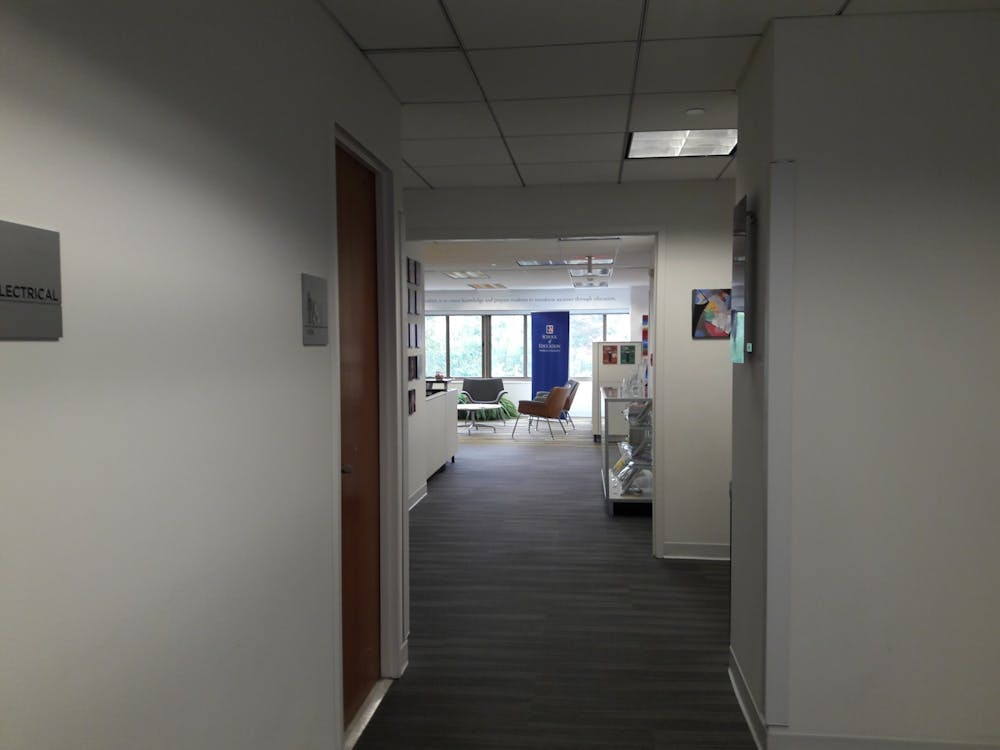The School of Education received a $1 million grant from the U.S. Department of Education to fund an early literacy intervention training program, just three months after its split from the College of Arts and Sciences.
July 1 marked the first day of independence for the school, and Dean Cheryl Holcomb-McCoy said the separation signified a huge accomplishment for faculty and students. She sees it as an opportunity to be more well-positioned to receive grants and achieve high rankings.
“We have a long-term vision that we will be connected with different high schools through post-graduation and the workforce,” Holcomb-McCoy said.
Jennifer Steele, an associate professor who has worked at the school since 2014, said many faculty members supported making the school independent “for quite a long time.”
“I could see advantages and disadvantages,” Steele said of the school’s independence.
While developing new programs as an independent entity could be challenging, independence can give the school more autonomy over its academic vision and fundraising efforts, she said.
As a result of the Department of Education grant, the school is set to supply tuition for up to 10 doctoral students for its early literacy intervention leads program. The school was also selected to become a member of the Carnegie Project on the Education Doctorate (EdD), an association of over 115 institutions that work to provide doctorate programs in education.
Holcomb-McCoy said branching out has launched new opportunities, like an online doctorate program in education policy and leadership. EdD is a practice-orientated doctorate that houses 15 new students who are leaders in education, some running charter networks.
“The EdD is a huge accomplishment for us because now we have high school students to doctorate students here at the School of Education,” Holcomb-McCoy said.
The first cohort of doctorate students will be given full-ride scholarships the following year.
Shallum Atkinson, a master’s student in the education policy and leadership program, is considering pursuing a public administration and policy Ph.D. in the future at AU’s School of Public Affairs. Previously, Atkinson was a legislative aide for Democratic Rep. Donald Norcross of New Jersey.
Atkinson said while he hasn’t witnessed drastic changes from the early months of the school’s independence, there is more of a “direct line of communication from what’s going on in our program every day to some of the administrators that are a part of our program.”
Atkinson, who’s set to speak at his commencement ceremony, will graduate in December.
In addition to the Department of Education grant, the school also received a $150,000 grant from the Gates Foundation to fund a year-long collaboration with the Antiracist Research and Policy Center in an educator preparation program. Holcomb-McCoy said it’s important for future educators to know the key concepts related to antiracism for future jobs.
“The fact that the Gates Foundation invested in us and in this project around antiracism is really good for us as a school of education,” Holcomb-McCoy said. “We want to be an incubator for big ideas culturally around antiracism for responsive teaching and education.”
The school has also seen progress in its dual enrollment program, she said. The program allows 12th grade students in District of Columbia Public Schools to take college courses and join a pipeline to teach in public schools after graduation.
Lynn Seumo, a master’s student in the school’s international training and education program, said she applied after her co-worker at the International Baccalaureate Global Centre in Bethesda, Maryland, recommended the program.
“It’s very small, it’s very collegial. You really just know each other very well,” Seumo said of the master’s program.
Seumo, who graduates in May 2020, hopes the change brings in more faculty members so students have more elective course options.
Holcomb-McCoy is strategizing to make the school stand out in national rankings.
“There is one metric which is reputation, so we need to have high visibility and high impact,” Holcomb-McCoy said. “I send newsletters to the deans at the top 100 schools of education, so they get information about us all the time.”
She also emphasized the importance of faculty advisement and external funding to bring recognition to the school.
“Our faculty are still continuing to publish books and journal articles, so as we stepped out and became a stand-alone school, the SOE has created a foundation of excellence for a long time,” Holcomb-McCoy said.
pjeancharles@theeagleonline.com and saustin@theeagleonline.com
This article originally appeared in The Eagle's December 2019 print edition.





